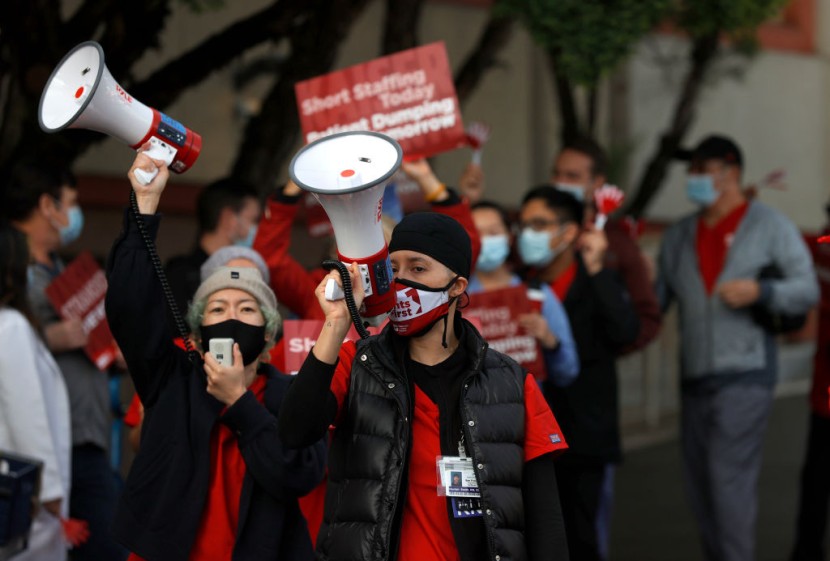
At Kaiser Permanente facilities around the country, tens of thousands of nurses and other healthcare workers began a scheduled three-day strike on Wednesday after contract negotiations fell short of the union's deadline for reaching a resolution.
The largest strike in the history of the American medical profession is currently taking place against Kaiser, one of the top not-for-profit healthcare networks and managed-care organizations in the country, as reported by Reuters.
Kaiser Permanente announced that during the strike, its hospitals and emergency rooms would be open and manned by physicians, managers, and "contingency workers." However, In order to accommodate any demand, Kaiser said it would defer non-emergency and elective treatments in some areas and send some prescriptions to outpatient pharmacies.
Fighting for Better Compensation Benefits
This year, workers in many industries, including the auto, rail, airline, and entertainment sectors, have engaged in difficult contract discussions and strikes over compensation and benefits due to the tight labor market in the United States and inflation.
The Kaiser union had a deadline of six in the morning. To reach an agreement on a new agreement affecting nurses, medical technicians, and support personnel in hundreds of hospitals in California, Oregon, Washington state, Colorado, Virginia, and Washington, D.C., negotiations began at 1:00 p.m. PDT (1300 GMT) on Wednesday.
The alliance, which consists of eight unions that represent nurses, technicians, and support workers, said that the business had not participated in negotiations in a sincere and fair manner. On September 30, the prior labor agreement came to an end.
Read also: Montana Judge Temporarily Blocks Ban on Gender-Affirming Care for Minors
The Impact of the Global Pandemic
In a press statement, employees claim that the COVID-19 pandemic worsened working conditions and made a staffing shortage that plagued multiple healthcare organizations worse.
The workers claimed that Kaiser's bad faith negotiations resulted in dangerous staffing levels, which caused excessive wait times, patient neglect, and missed diagnoses. The Coalition also stated that it is fighting for stronger retiree health insurance and safeguards against subcontracting and outsourcing.
Along with its 24,000 doctors, Kaiser nationwide employs 68,000 nurses and 213,000 technicians, clerical staff, and administrative personnel.
The unions have been pushing Kaiser to hire more people and increase wages. The union insisted Kaiser needed to hire 10,000 more healthcare professionals to cover current vacancies, which has been a key area of contention.
Only the optometrists and pharmacists would go on strike in Virginia and Washington, D.C., but the effect on patients in California, Colorado, Oregon, and a portion of southwestern Washington state would be worse, a Kaiser spokesperson said on Tuesday.
According to U.S. data, there have been nearly 309,700 work stoppages this year through the month of August. According to data from the Bureau of Labor Statistics, 2023 is on pace to see the most strikes since 2019.
Related article: Kaiser Permanente Workers' Strike: 75K Employees Could go on Strike After Labor Contract Expires
© 2026 HNGN, All rights reserved. Do not reproduce without permission.








